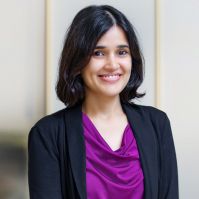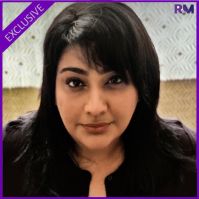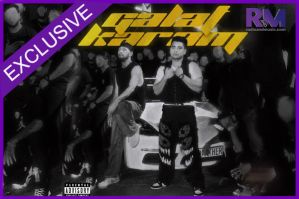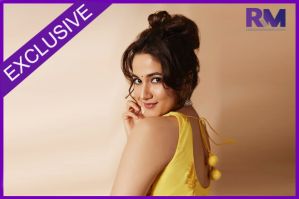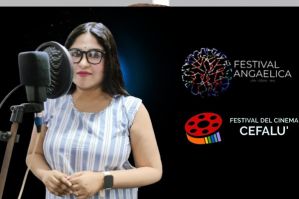Karsh Kale - 'If you can't fight the Bollywood music beast, you should change it'
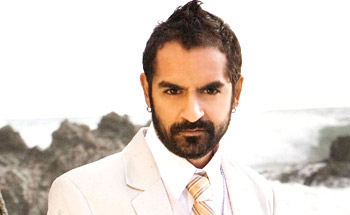
Percussionist, songwriter Karsh Kale is primarily known for his tabla and electronic drumming skills. The US bred musician has impressed the world with his original form of music, blending traditional Indian instrumentation with techno and drum n' bass. Kale, who recently stepped into Bollywood and composed the background score for Karthik Calling Karthik along with Midival Punditz, traces his musical journey for Radioandmusic.com's Harpreet Khokhar.
Tell us about your musical background and how your solo work came about.
I grew up in New York playing drums with various rock bands and was very interested in the tabla and Indian classical music as well. I began composing music by the time I was 16 While studying music production at New York University, I was performing as sessions musician for different artists in New York - such as DJ Spooky and 32 Tribes, which brought me deeper into the underground electronica scene. Soon after, I started making my own productions and selling them at shows and events I was doing around NY. I found myself on a national tour playing in DJ Spooky's band and simultaneously opening the show with my DJ - tabla sets This was how I got my music into the hands of Six Degrees' Records. I finally signed a record deal in 1999, which was the beginning of my solo career. Though I have continued to collaborate with many artists, my focus has mainly been my solo work.
Have you had any formal training in music?
I am predominantly a self-taught musician. Though I did study tabla and cello formally as a child and was a part of all of my school ensembles growing up including Wind Ensembles, Jazz Ensembles, Marching bands etc, my musical exploration was always my own I have never spent much time with a formal guru, as I was too much about trying different things rather than sticking to one path. Most of my development as a tabla player, drummer, guitarist or composer has come through experience rather than formal training.
What have been the influence on your music over the years?
My very first influences in music were people like John Bonham of Led Zeppelin and Neil Peart from Rush. These were my drum heroes. I also was a huge fan of the Police as well as Michael Jackson. My love for drums led me to discover Zakir Hussain and the tabla. Indian music became more and more embedded in my musical palette as I began listening to artists like Hariprasad Chaurasia, Ali Akbar Khan and Ravi Shankar
As I grew, I began to explore a lot of Jazz-fusion and artists like Jaco Pastorious, Chick Correa, Pat Metheny and of course drummers like Vinny Coleuta and Manu Katche. I also had been a break-dancer growing up, so early hip hop culture had been a part of my world and played an early role in opening a door into production and electronica for me. I also began listening to a lot of pioneering fusion artists like Trilok Gurtu, Shakti and Bill Laswell It wasn't until the Jungle and Drum n Bass scene exploded out of London in the mid 90's, that I truly embraced electronica and the fusion of Indian music within that space. Aphex Twin, Square Pusher, Roni Size and others were some of the first electronica artists that I began to explore.
Today I listen to everyone from Mos Def to Radiohead to Hans Zimmer to Shiv Kumar Sharma and everything in between.
Tell us about the Asian Massive movement and your role in it.
When I first moved to New York in 1994, the first signs of a movement had already begun. I began meeting like-minded South Asian artists in New York who have since all gone on to further their own artistic journeys. Before it was ever called the Asian Massive, I had been playing the tabla with two groups that had attained a mass reputation in New York City, one called the Bell Band and the other was 32 Tribes. The Bell Band was an amazing collection of musicians that for four years rocked a residency at the now defunct Bell Cafe in Soho, NY. It was through these shows that I got to expose myself and connect with the coolest underground music scene in New York.
I soon started my own event called Futureproof which featured musicians and DJs from New York that played everything from Asian electronica to Live Drum and Bass. This party, along with parties like Mutiny and Basement Bhangra started by DJ Rekha, formally marked the explosion of the South Asian electronica scene in the city. Simultaneously, the London underground scene had been exploding and the release of albums like Anokha, Nitin Sawhney's Migration and bands like Asian Dub Foundation reached our shores and solidified the mission in our minds
I began collaborating with artists from London in the late nineties, like Talvin Singh, Amaar, Osmani Sounds, Somatik, Cleveland Watkis as they were all pioneering the Asian sound in England. It was through my travels in England that I met the Midival Punditz who had been blazing their own trail in New Delhi. I signed with Six Degrees Records and also pushed to get the Midival Punditz on board. The following year The Punditz and I embarked on the Asian Massive tour with Dj Cheb I Sabbah and Zakhm We toured across America supporting four brand new Asian Massive releases and connected with an entire national scene. We continued that in India the following year. I also began playing live with Tabla Beat Science with Zakir Hussain and Bill Laswell. This band got to tour the world and was truly influential in the movement.
Back in NY, I started Kollektiv as a weekly event. Kollektiv was a way to bring like-minded artists, DJs and producers together in one room, to help diversify the scene we all represented. It soon expanded to residencies in San Fransisco , San Diego, Washington DC and Chicago Although we have discontinued using the name Kollektiv, the artists involved still collaborate together to this day. Kollektiv is a play on the word Collective, as the K represents my involvement in initiating the movement. Although I think that I have been less involved in throwing events and pushing a scene and more involved now in my own growth as an artist and composer, the scene continues to grow and thrive in new ways and with new influence.
You have collaborated with several international artistes. Any specific artiste that you would like to collaborate with?
For me, collaborating is always a learning experience. I have learned so much through my collaborations with Zakir Hussain, Bill Laswell, Anoushka Shankar and the Punditz. I use it as an opportunity to share ideas as well as a moment to take something with me to my next adventure. Zakir Hussain, Sting and Ravi Shankar are three of my biggest influences, so working with them was not only life changing, but more like a crash course in everything that I have learned about music. That being said, I think that any artists that I can learn from are people I would like to collaborate with. Off the cuff though, Thom York, Mos Def, Jay Z and Sabir Khan are a few people that come to my mind.
You have worked with Midival Punditz over the years, including the recent Bollywood flick Karthik Calling Karthik. Tell us about your equation with them.
The Punditz and I have played a profound role in each other's music over the years. Our initial connection was through a common need to push our music forward. We have always intended to help complete the picture that we as individual artists have been trying to make - both in our music and in the way we promoted it. We have been label mates and have collaborated on each others' albums since the beginning.
Over the years, the Punditz and I furthered our partnership into a live touring band playing material from all our past albums as well as a production team for film and other projects called Midival Punditz-Karsh Kale (MPKK). The Punditz and I have always challenged each other since we come from such different backgrounds - both musically and culturally - to grow in different ways as artists, yet we have so much in common that it was always a natural fit for us to default into a band situation. When I work with the Punditz we always have big ideas about music and it takes the three of us to manifest those ideas into musical realities.
In India, it is only Bollywood music that sells. Your take on the sorry state of non-film music here?
I think the sorry state is not because of the Bollywood machine but the lack of diversity within it. Bollywood is not a style of music but rather a vehicle to promote music and film. Much like MTV was in America in the 80s and 90s, Bollywood simply dominates the airwaves as far as its reach goes. The change needs to come from within the Bollywood industry. FM stations, producers and the rest should realise that with this massive promotion machine, they are losing out on doing big things with the alternative talent that exists in India. If you can't fight the beast, then you should try to change it.
What are your forthcoming projects?
I will be finishing my next solo album this month, which ironically is titled 'Cinema.' It's not a collection of film music but rather a journey of songs and instrumentals about how life plays out like a film. I am excited about this one because I haven't released a solo album in almost three years. In that time, I have got better as a composer and song writer, not to mention as a musician. So, for me it is important to get this music out of my system now, to make room for future projects including an album collaboration with the Punditz as well as collaborations with Afrika Bambatta and a few others. I will also begin composition on a piece commissioned by the Bang On A Can festival in New York to be performed by the BOC All Star Orchestra next winter at Lincoln Center.




